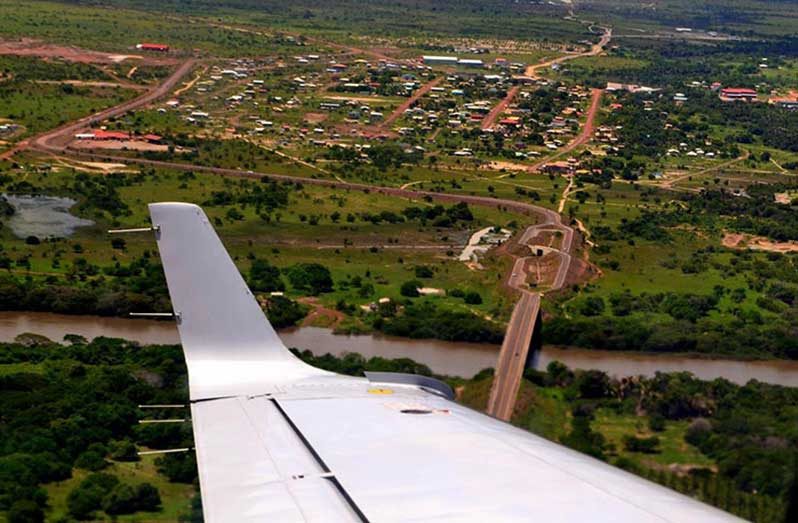THE hinterland regions have experienced a significant increase in passenger travel and cargo traffic over the past year. President Dr. Irfaan Ali attributes this growth directly to government interventions aimed at eliminating excessive taxes on gasoline and diesel. These measures were implemented to mitigate the impact of rising global fuel prices.
“We removed the [value added tax ] VAT on local air travel, putting back $3 billion in your pocket, giving you $3 billion saving right away off the bat,” the Head of State said on Monday, while addressing hundreds of indigenous village leaders, also known as Toshaos at the ongoing National Toshao’s Conference (NTC).
As of June 30, 2024, passenger traffic in the hinterland regions have increased to 48 per cent, while cargo movement has increased to 50 per cent. “More people are visiting your communities. More spending is created in your communities,” President Ali said.
Back in 2022, several Toshaos had highlighted that the high airfares are contributing to a significant increase in the price of basic commodities.
The village leaders had explained that while the infrastructure to facilitate air traffic was in place, there had not been much frequent flights during that period.
Some hinterland communities can only be accessed by air.
To address these concerns, President Ali had set up a meeting with Toshaos of various hinterland communities to engage domestic airline operators.
Earlier this month, Guyana’s Vice President, Dr. Bharrat Jagdeo, had disclosed that the government has forgone approximately $80 billion in taxes by eliminating a 50 per cent excise tax on diesel and gasoline.
“We are foregoing over $80 billion of taxes by removing a 50 per cent excise tax on fuel on just two things, on diesel and gasoline. Nearly $80 billion of foregone taxes that we gave up because we removed the 50 per cent excise tax. So that’s 80 billion Guyana dollars. And what does it translate into for the individual… for every gallon of gas that you buy, or every gallon of diesel, the government basically subsidises it $500 Guyana dollars,” Dr. Jagdeo explained.
This measure, he noted, has helped stabilise the cost of production and transportation in Guyana, despite global increases in fuel prices.
“Even though global fuel prices have surged, our intervention has kept local transportation and production costs stable. Unlike other countries, where residents and industries face higher costs due to increased fuel prices, we have managed to keep these costs constant.”
Significant progress has been made in accelerating Amerindian and hinterland development through various initiatives, including financial support from Carbon Credit revenues, Presidential Grants, the Amerindian Development Fund, and other programmes across several ministries.
Over the past four years, the government has invested heavily in improving essential services such as healthcare, education, energy, and social welfare, with billions of dollars being allocated towards these goals.
In Georgetown this week, more than 300 indigenous village leaders are coming together. The week-long conference provides Amerindian leaders with an opportunity to engage in direct consultation with the President and members of his Cabinet regarding matters that impact their communities. It also allows them to propose suggestions for advancing their development.



.jpg)










